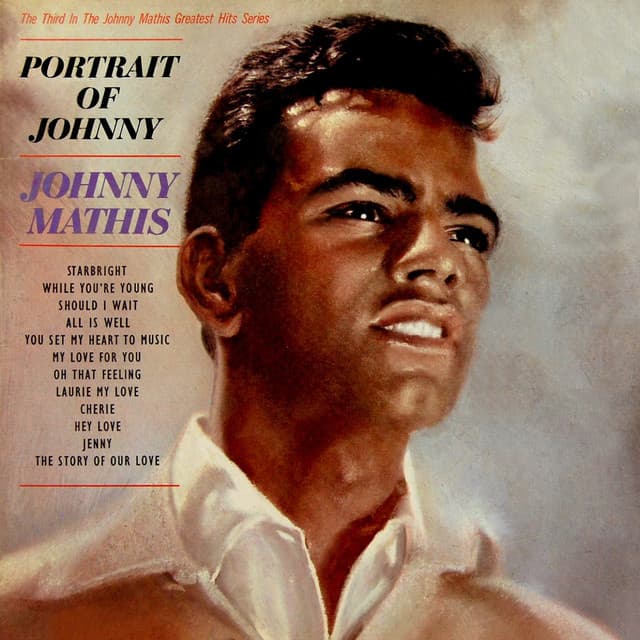
The Last Golden Glow of a Pop Ballad Era
To speak of Johnny Mathis is to conjure an entire age of romance—a time when a singer’s elegant delivery and perfect vibrato could turn a simple melody into a timeless emotional monument. The year 1960 marked a pivotal moment in popular music: the early tremors of rock and roll were giving way to the sophisticated pop sounds of the new decade. It was into this lush landscape that Mathis released “My Love for You,” a track that solidified his reign as the ultimate voice of sophisticated, unwavering devotion.
Released as a single on Columbia Records, “My Love for You” was a notable success, particularly overseas. While the single peaked modestly at Number 47 on the U.S. Billboard Hot 100 chart, it found much greater acclaim across the Atlantic. In the United Kingdom, where the record-buying public cherished Mathis’s smooth, soaring style, the song climbed triumphantly to Number 9 on the Official Singles Chart in the autumn of 1960. Its enduring popularity in the UK cemented its place as one of his last significant international pop singles before his career began to focus overwhelmingly on album sales and standards, a realm where he would become virtually untouchable.
The song itself is a marvel of concise, powerful songwriting, a hallmark of the era’s best balladry. Written by the seasoned team of Abner Silver and Sid Wayne, “My Love for You” is a beautifully crafted expression of fidelity and scale. Its meaning is entirely contained in its sublime verses, which use grand, elemental imagery to describe an intimate feeling: “My love for you is deep and endless as the sea, / Strong and mighty as a tree.” There is no melodrama, only a stately, sincere promise that “My eager heart keeps beating just for you alone,” and a declaration that “There’ll be no other lips, no other eyes, no other love for me.”
What made this particular rendition so unforgettable was, of course, the unparalleled artistry of Johnny Mathis. Under the musical direction of Glenn Osser, the orchestration is suitably grand, a sweeping, cinematic backdrop of strings and chorus that provides a silken cushion for Mathis’s voice. His performance is a masterclass in controlled emotion. He doesn’t belt or shout; rather, he builds the intensity through sheer vocal purity, his breath control and perfect pitch conveying the depth of feeling with effortless grace. It is this polished, yet utterly convincing, sincerity that made Mathis the definitive soundtrack for countless first dates, engagements, and anniversaries for generations of listeners.
For older readers, hearing “My Love for You” is like turning a page in an old, cherished photo album. It evokes a simpler, more earnest time in courtship, where words were measured and emotions were conveyed with a touch of elegance. It represents the height of the traditional pop vocalist—a singer whose voice alone was the instrument of romance. This song is more than a hit record from 1960; it’s a beautifully preserved artifact of the way we used to love, perfectly preserved by The Voice of Romance himself, Johnny Mathis.